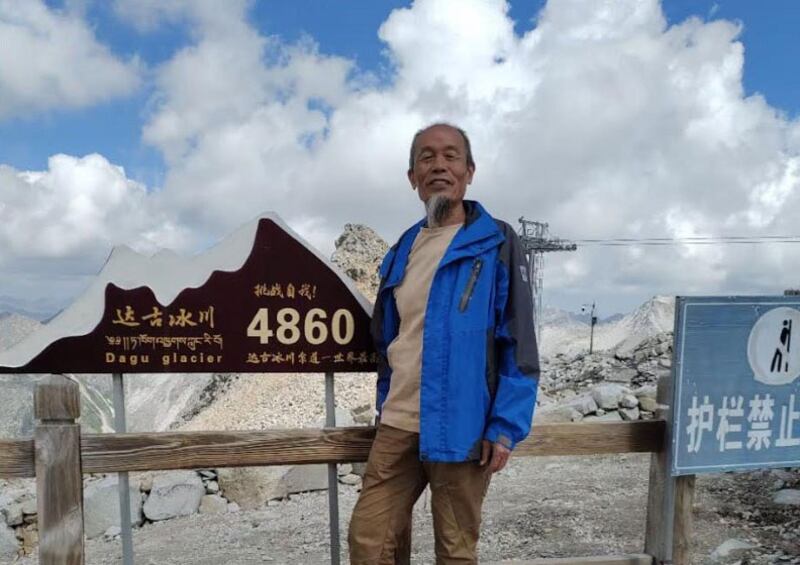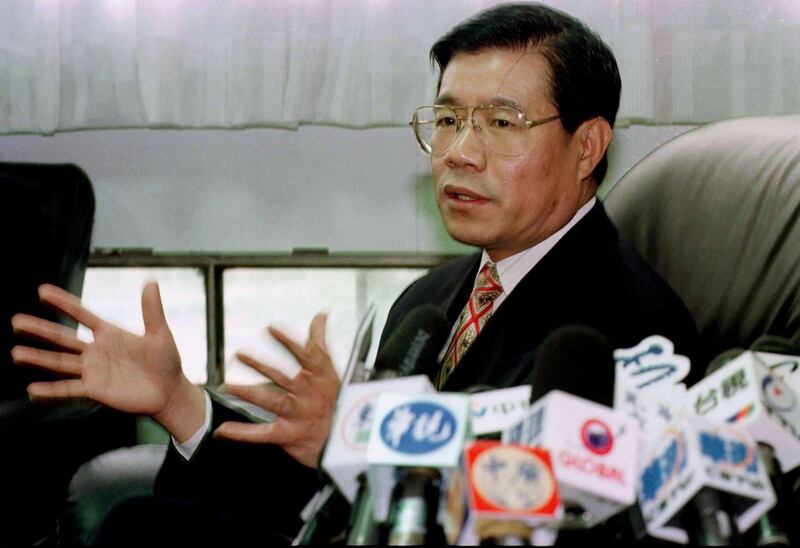Veteran rights activist Guo Feixiong is refusing food in Sihui Prison in the southern Chinese province of Guangdong, sparking concerns about his deteriorating health, Radio Free Asia has learned.
Guo, serving an eight-year jail term for "incitement to subvert state power" after he set up a website calling for constitutional democracy, recently wrote to his family asking her to make arrangements for his funeral, a friend who requested anonymity for fear of reprisals said on Thursday.
The 58-year-old Guo, whose birth name is Yang Maodong, has been refusing food since he started serving his sentence in May, and now weighs less than 40 kilograms, down from 65 or 70, after speaking to family members who visited Guo in prison last month.
"His state of health is very bad, and he is pale with thyroid problems – he’s just skin and bones.”
"He wrote in a recent letter that he had a fever for more than 10 days, and it wouldn't go away," the friend said. "During the visit, he was cold, and was shivering despite being covered by a quilt ... He was very weak."
The fact that Guo is still alive suggests that the prison authorities have been force-feeding him, the friend said. "Otherwise he would have died a long time ago."
"If he continues to lose weight, it will definitely be life-threatening," he said.

Prison authorities recently denied Guo's request for a transfer to Panyu Prison, where conditions are better and where he would be closer to his sister Yang Maoping, Hunan-based rights activist Zhu Chengzhi said, calling on them to grant his request.
"If he can be moved to Panyu Prison ... it will be much easier for her to visit him," Zhu said. "I can't understand why they won't agree to it, and I strongly protest [this decision]."
Life sentence
Meanwhile, the relatives of jailed veteran activist Wang Bingzhang – who is serving a life sentence to be served in solitary confinement for spying for Taiwan – say he is suffering from very high blood pressure.
Wang's U.S.-based daughter Wang Qingyan visited her father in Guangdong's Shaoguan Prison on Sept. 18, her brother Wang Bingwu told Radio Free Asia.
"When he came out to meet with my niece, he had to be helped along," Wang Bingwu said. "He was obviously ... very weak and very thin."
"Is he eating well? Are all of his nutritional needs being met? We don't know."

Wang, 75, has reportedly already suffered several strokes in prison, and continues to have very high blood pressure, Wang Bingwu said.
"His blood pressure has been very high recently, sometimes as high as 170,” he said. “Even when he takes medicine, his blood pressure is still usually around 150."
"Since high blood pressure can cause stroke, it could be said that his life is in danger," Wang Bingwu. "I believe that his medicine isn't specially prescribed for him, but is just a generic blood pressure medicine, and it's not that effective."
He said his brother still writes to his family once a month, although the letters are read by the authorities and sometimes take three months to arrive.
"We can't just call the prison directly and talk to him -- it's not allowed," Wang Bingwu said.
Studied medicine
Wang was one of the first Chinese nationals to study medicine at postgraduate level overseas, following the economic reforms and opening up policies of then-supreme leader Deng Xiaoping, following decades of relative isolation and political turmoil under Mao Zedong.
But in 1982, he gave up medicine to dedicate himself to the full-time pursuit of democracy in China, moving to New York and founding China Spring in the same year, as well as co-founding several of the first overseas Chinese democratic parties.
In December 2022, his U.S.-based family announced they would reboot China Spring, the pro-democracy magazine he founded in a bid to 'pass the torch' to the next generation.
Wang spent the next 20 years of his life "organizing and promoting pro-democracy activities in North America and around the world," according to his official website.
In 1989, he was prevented from entering China during the Tiananmen Square protests, but managed to get back in covertly in 1998, where he was instrumental in helping to found the banned opposition China Democracy Party, only to be arrested and expelled from the country two weeks later.
Wang traveled to meet with Chinese labor activists in Vietnam in 2002, before disappearing along with two companions and being dumped across the border in China to be arrested by Chinese police.
He was tried in secret by the Shenzhen Intermediate People's Court on Jan. 22, 2003, and handed a life sentence to be served in solitary confinement after being found guilty of spying for Taiwan and plotting to bomb the Chinese Embassy in Bangkok.
During the trial, no evidence was presented nor witnesses called to back up the charge against him. Wang Bingwu said a senior officer in the Thai police had even testified that Wang was never involved in any bomb plot in Bangkok.
Translated by Luisetta Mudie. Edited by Malcolm Foster.
